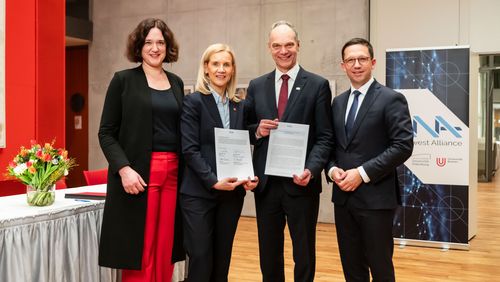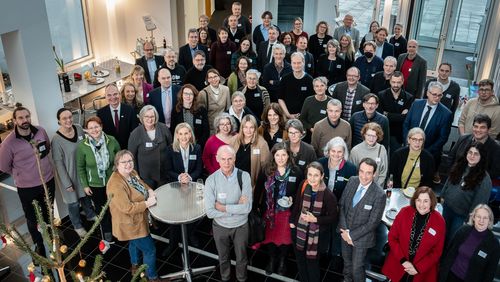The election of the members of the review boards of the German Research Foundation (DFG) for the 2024-2028 period is under way. The voting ends on November 20th. Fifteen scientists from the University of Oldenburg are running for office.
Prof. Dr Christiane Thiel, the University of Oldenburg’s Vice President for Research and Transfer, describes working on a DFG review board as “one of the most interesting tasks in the area of academic self-governance”. These committees carry great responsibility: they discuss research proposals and make recommendations as to which projects should receive funding. This ensures the “fair and equal treatment of all proposals”, Thiel explains.
The DFG’s 49 review boards deal with 224 subjects from all the different academic disciplines – from Egyptian antiquities to computer science and cell biology. Their members are elected by some 150,000 scientists across Germany and work on an honorary basis. The review boards are thus effectively the parliament of academia.
From October 23rd to November 20th all eligible researchers are called upon to elect the 649 members of the review boards for the next four-year term. There are 1,642 candidates in total, 15 of whom are from the University of Oldenburg. Each eligible voter has six votes which they can freely distribute among candidates from different subject areas. They are allowed to give up to three votes to one candidate. Information about registering to vote and the online election process can be found on the University's Elections Office web page.
Large sums of money are at stake
The election is important for the German research landscape because the review boards also advise the DFG on the further development and design of the latter’s funding programmes. In addition, large sums of money are at stake: 3.9 billion euros were approved for research projects last year by the DFG, which receives most of its funds from the federal and state governments. DFG-funded projects also play an increasingly important role at the University of Oldenburg: the DFG approved around 29.3 million euros for research at the University in 2022, compared to 7.5 million euros in 2008, which had already risen to 23.7 million euros by 2018.
The review boards ensure that DFG funds are distributed according to scientific principles. First, a group of volunteer reviewers assesses a research proposal from a subject-specific perspective, then the relevant review board evaluates the review, paying particular attention to uniform standards. "I was impressed by how extensively conflicting reviews were discussed and weighed up," says Thiel, who has been a member of the review board for psychology for the past four years.
Through their intensive work, review board members acquire a good overview of the research across the entire spectrum of a subject at the national level – as a positive side effect, so to speak. Thiel found this opportunity to look behind the scenes both exciting and useful: “I can pass on the knowledge I gained in the review process to my colleagues here at the university,” she points out.




